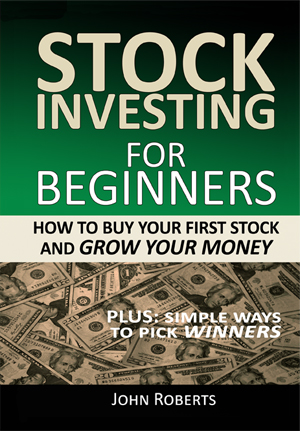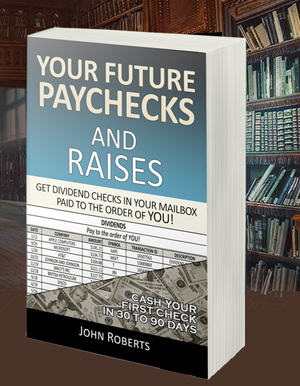Selling Options – If You Can’t Beat Them, Join Them
So here’s an interesting fact for you about stock options. We know that when people buy options, 80% of the time they expire worthless and they lose their money. That leads to one of two thoughts.
First thought — let’s just not buy options, because they seem to be a bad odds proposition. That’s not totally true, actually, because there are smarter ways to buy options that can give us better odds, but we’ll leave that thought for another time.
Let’s look at the second thought. If people buying options are losing 80% of the time, that must mean people selling options are winning 80% of the time. So if we can’t beat them, join them, right?
Okay, so we are going to sell options. But let me warn you right here, don’t go out and sell options just yet. Because, if you do this the wrong way, you can get in a situation called unlimited liability. Let me put that another way. You could lose your house, your car, your everything, so let’s kick this around a bit first.
There is one way to sell options that keeps that unhappy situation from happening. Now no investment you make is totally safe, but this one is safe enough that the government actually lets you do it in your 401k. So that indicates this is not a totally insane idea.
And believe it or not, by doing what I’m about to tell you, you can add 10 – 20% to some of your existing stock investments. But you have to do it with the right stocks.
So here’s how it works.
You find a good solid stock, that is stable or gradually going up over time. Stocks like Walmart maybe, or McDonalds, or Intel, or Microsoft, something like that. Stocks in solid companies that are going to be around for a long time.
Let’s use Microsoft as an example. So you buy 100 shares of MSFT. Now the stock is just sitting there in your account, going up or down, more or less up, and paying you around 3% in dividends. This type of stock is typically pretty good for your portfolio over the long term.
And over time the price should gradually go up, Microsoft will probably keep increasing their dividends, and the odds are you will find yourself in a happy place.
And let’s say that Microsoft is going for $25 a share. So you bought 100 shares and now own $2500 worth of stock.
There are people out there that think Microsoft will go up to $30 a share in the next month. And they are willing to pay you $100 for the right to buy your shares for $27 a share any time in the next month. Interesting, because, Microsoft hasn’t even hit $27 a share yet. But somehow, this looks like a good deal to them. Why would they want to do that?
Let’s get into their head for a minute. We said it looks like a good deal to them. Well, that’s because if Microsoft goes to $30 a share in the next month, and they can buy your 100 shares for $27, they can sell them for $30 a share and make a quick $300 ($30 – $27 * 100 shares). And they don’t have to invest $2500 like you did when you bought the shares. They just have to pay you $100 for the option to buy your shares at $27.
So it looks like a sweet deal for them. But if it’s such a sweet deal for them, why would you even consider doing it?
Because the odds are that the stock will not go over $27 a share in the next month, their option will expire worthless, you keep their $100 and don’t have to sell them your 100 shares, that’s why.
What are the odds you win in this deal? Well, as we said earlier, the overall average says 80 % of the time you win. Those are good odds, my friend.
Now, you may think making a $100 in a month on your $2500 investment doesn’t sound like huge big money. But it can be. Because, when their option expires worthless, you can do this again. You can turn right around and sell someone else a one month option on you Microsoft shares for another $100.
Theoretically, you could do this twelve times in a year. You would have made $1200 on your $2500 investment. Plus whatever amount your stock went up (to $27), plus the dividends you collected. Now, practically speaking, you probably can’t sell twelve of these a year, but you certainly could do six or more if the market conditions are right – so that’s still a good return on your investment.
But what if you lose the bet? What if Microsoft really does go up to $27 dollars a share and you have to sell them your 100 shares? You still win! Because you made $200 ($2 a share – remember, you bought it at $25 and you are selling it at $27) plus you get to keep the $100 they paid you for the option.
Hmmm … you lost the bet and still made $300. I find that’s interesting don’t you? Even when you lose you make $300. I could learn to lose like that all day and be happy.
Now, of course, this is a simplified example (we’ll get into more of the subtleties of the trade in the future).
But can you see why I say if you can’t beat them, join them?
And do you like to make money even when you lose the bet?



